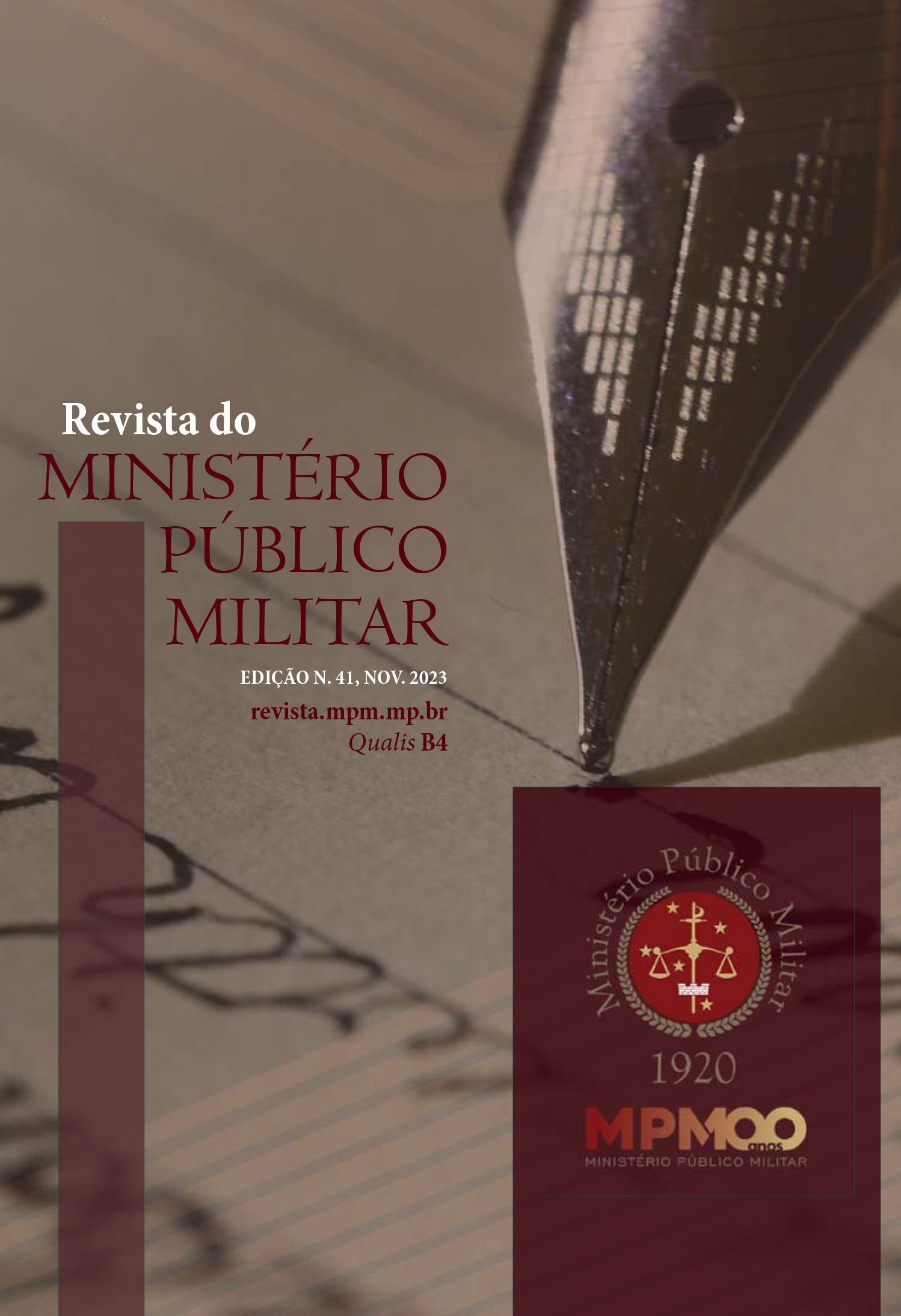The (in)validity of the model for archiving a military police investigation in light of the most recent jurisprudence of the Federal Supreme Court in the Anti-Crime Package
Keywords:
anti-crime package, criminal, military, jurisprudence, police investigationAbstract
With the publication of the Anti-Crime Package and its recent judgment by the Federal Supreme Court in Direct Actions of Unconstitutionality 6298, 6299, 6300 and 6305, the analysis begins as to whether the archiving model of the Military Criminal Procedure Code has the same constitutional basis in relation to the model applied to the common Criminal Procedure Code, considering the doctrinal movements of applying it to the detriment of the Military Procedure Codex. It was concluded that there are no barriers to the application of article 28 of the Code of Criminal Procedure to military legislation in accordance with the provisions of the Anti-Crime Package, and we must await the decision of the Federal Supreme Court. The main thing is to guarantee the autonomy of the Natural Prosecutor and improve the accusatory system.
References
ASSIS, Jorge Cesar de. Código de processo penal militar anotado – 1. v. (arts. 1º 383). 5. ed. Curitiba: Juruá, 2020.
AVENA, Noberto. Processo Penal.15. ed. Rio de Janeiro: Método, 2023.
BRANCO, Paulo Gustavo Gonet; MENDES, Gilmar Ferreira. Curso de direito constitucional. 12. ed. rev. e atual. São Paulo: Saraiva, 2017.
LIMA, Renato Brasileiro de. Manual de Processo Penal. 8. ed., rev., ampl. e atual. Salvador: Editora Juspodivm, 2020.
NEVES, Cicero Robson Coimbra. Manual de Direito Processual Penal Militar – Volume Único. 5. ed., rev., ampl. e atual. Salvador: Editora Juspodivm, 2021.
PACELLI, Eugênio. Curso de Processo Penal. 24. ed., rev., ampl. e reform. São Paulo: Atlas. 2020.
RANGEL, Paulo. Direito Processual Penal. 29. ed., rev., ampl. e atual. Barueri (SP): Atlas. 2021.

Downloads
Published
How to Cite
Issue
Section
License
Copyright (c) 2023 Revista do Ministério Público Militar

This work is licensed under a Creative Commons Attribution 4.0 International License.

Este trabalho está licenciado com uma Licença Creative Commons – Atribuição 4.0 Internacional.
